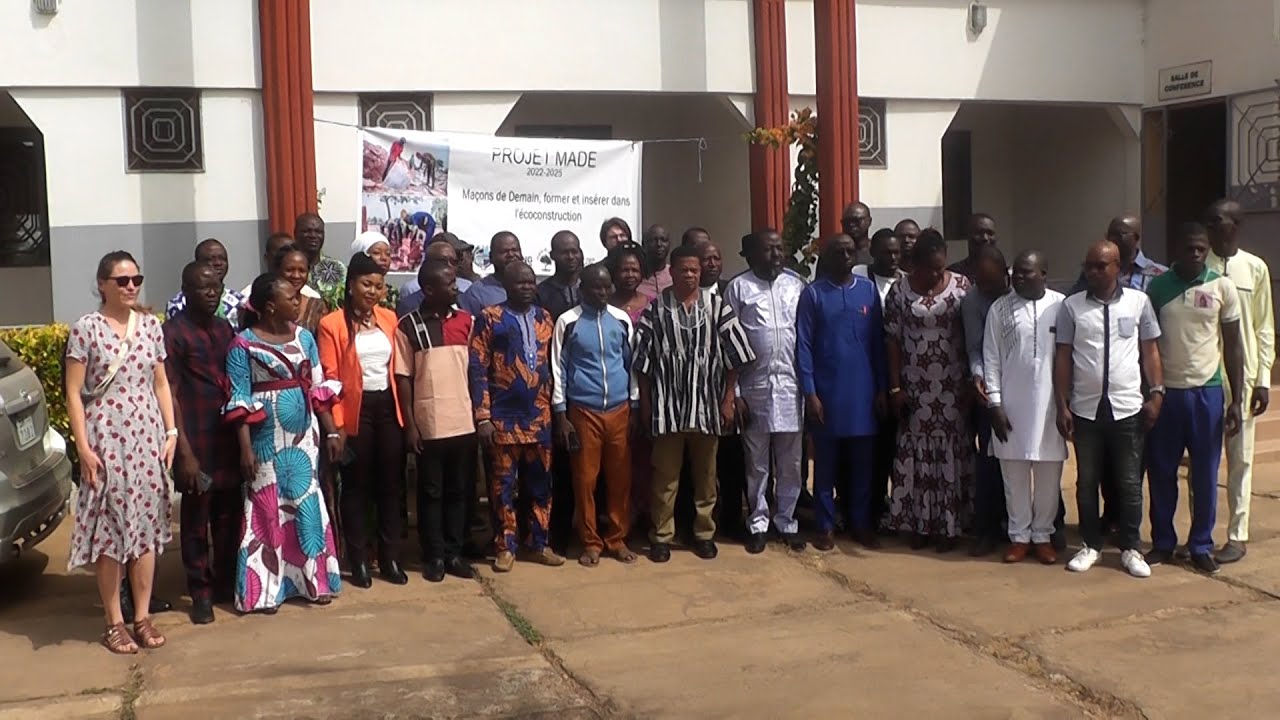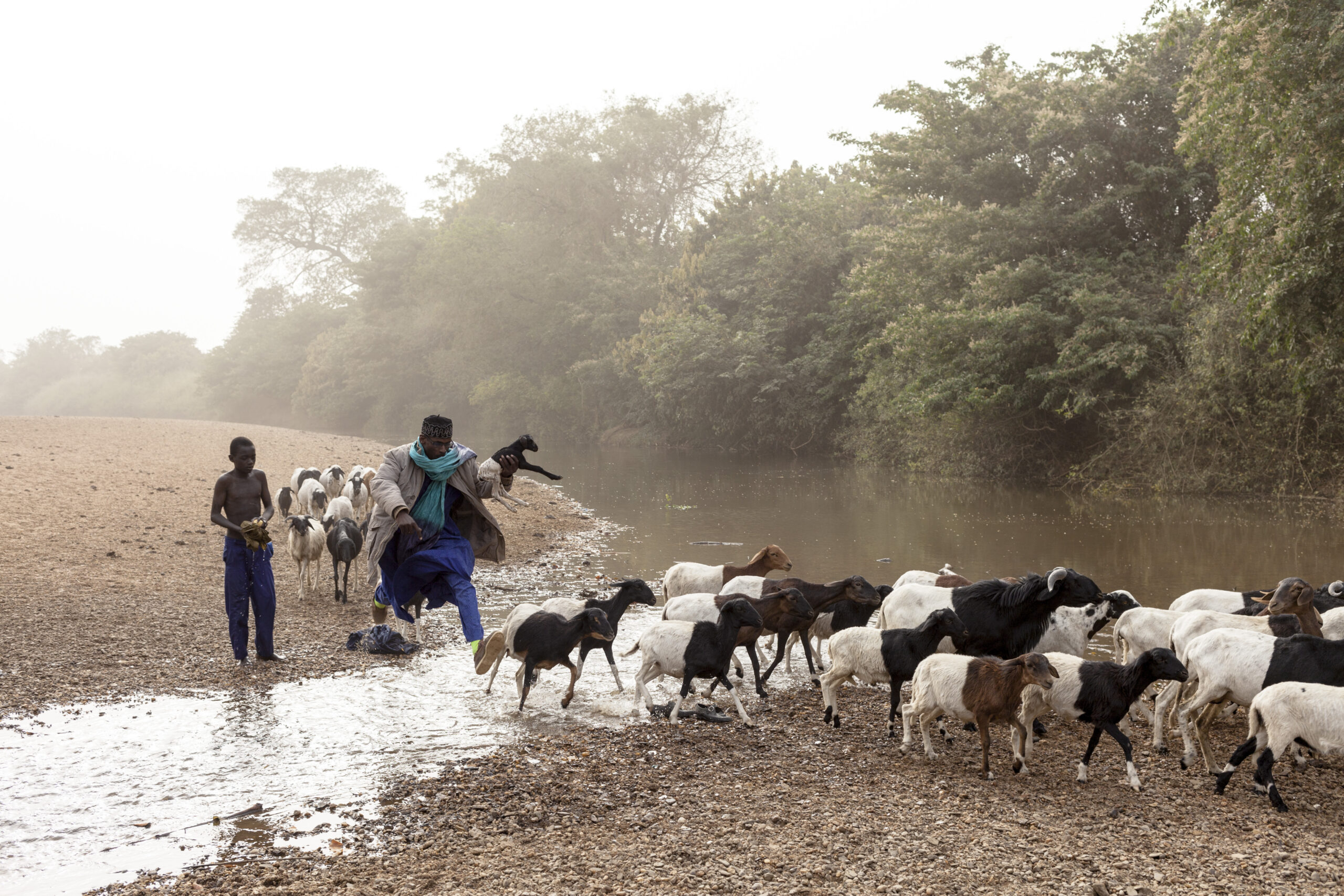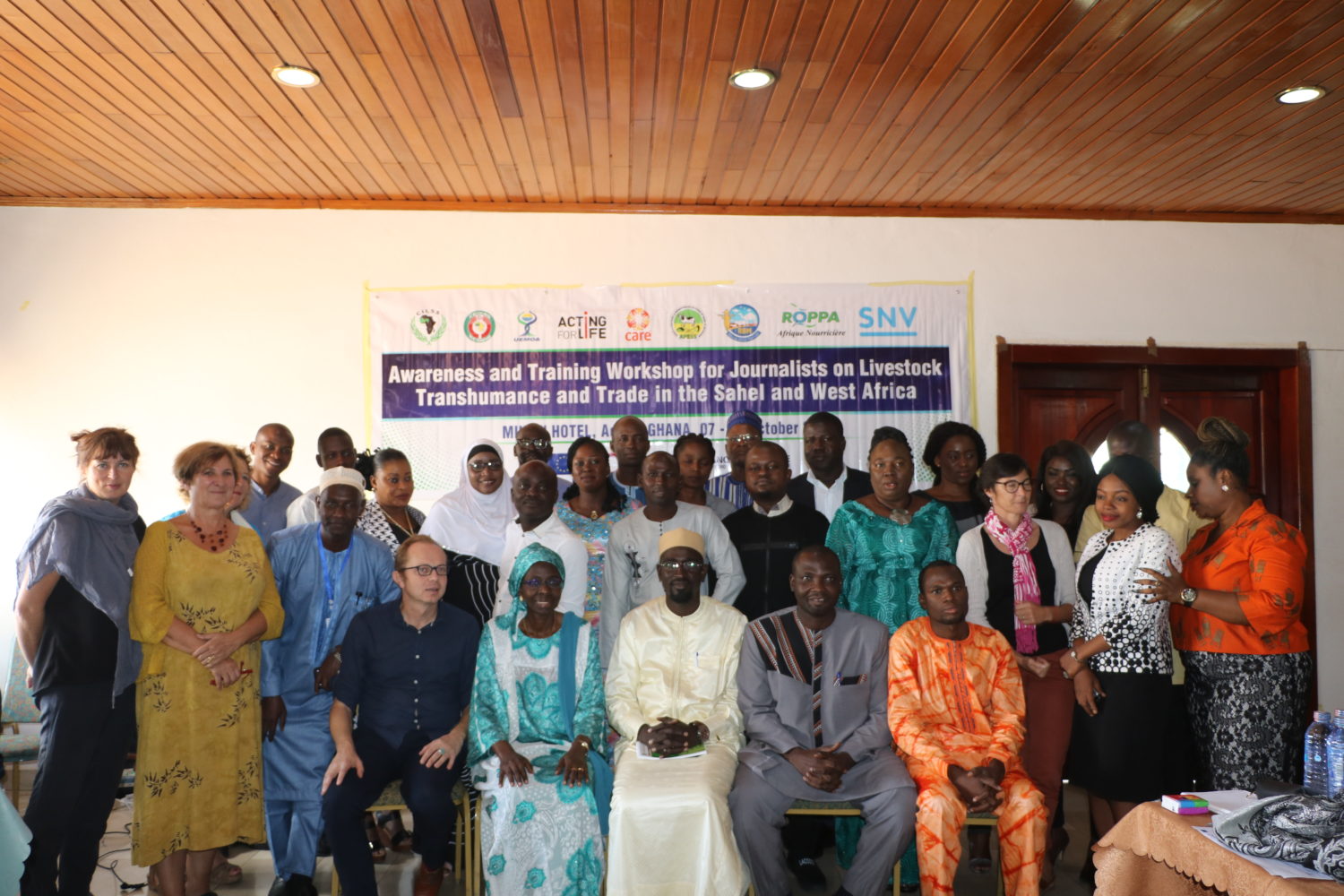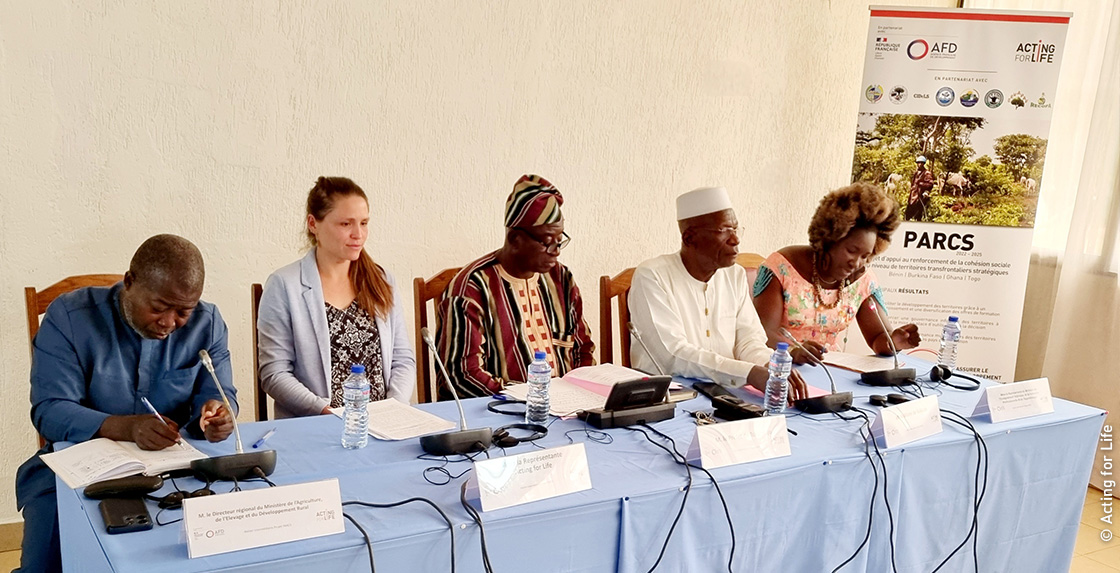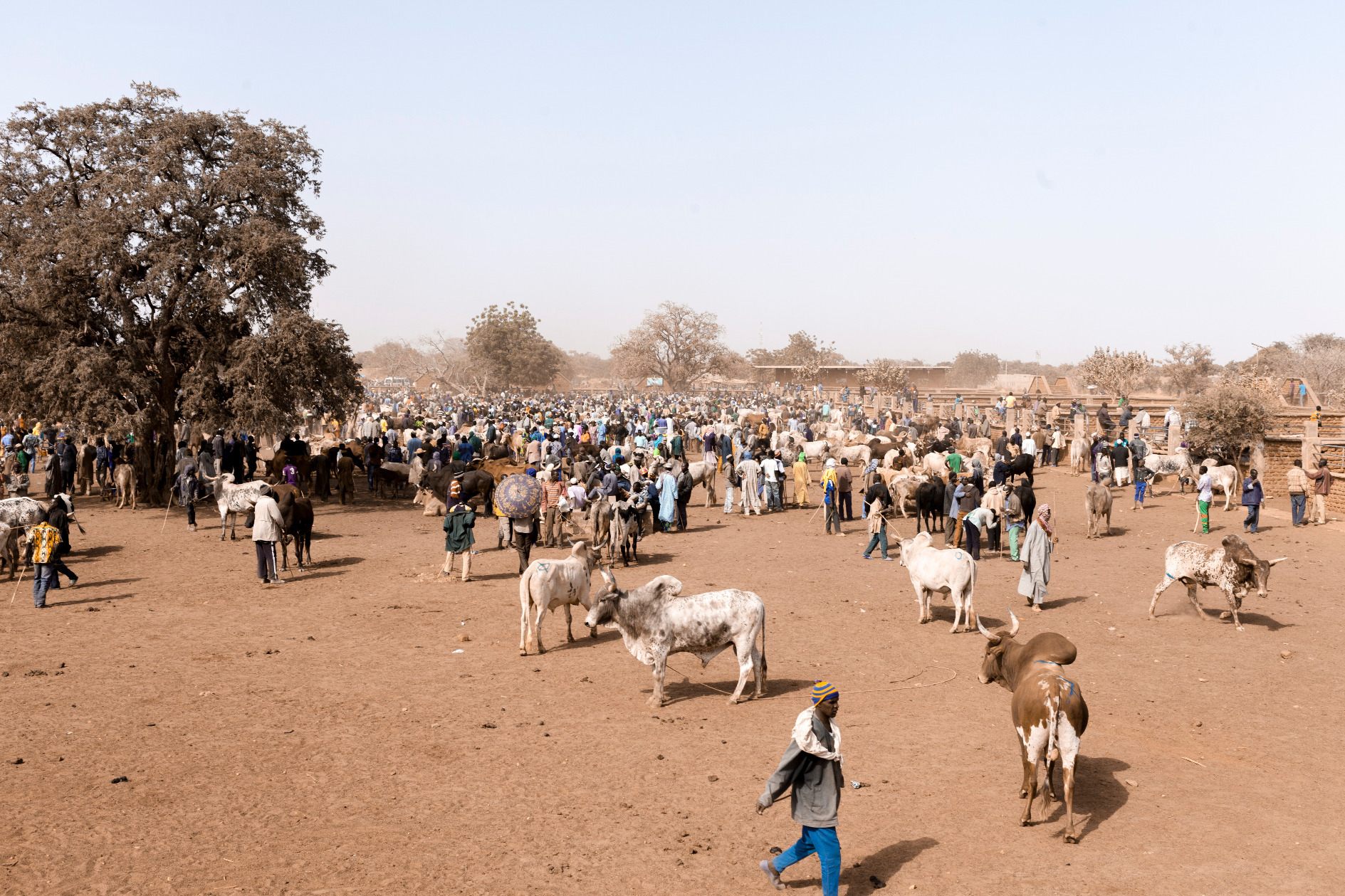As part of its activities to support the socio-economic integration of young people, in 2022 Acting for Life (AFL) launched the MADE project – Maçons de Demain: former et insérer dans l’écoconstruction (Masons of tomorrow: training and integration in eco-construction). This is a continuation of projects started in 2015 in Benin, Togo and Mali.
The aim of the 3-year project is to promote the professional integration of young people in the masonry sector. In particular, the project involves the development of a new training programme, a monitoring and integration system and support for the development of local eco-construction industries.
The project is being implemented alongside two local NGO partners, GEVAPAF in Togo and ACAD in Benin, and in conjunction with 4 training centres. It is financed by the Agence française de développement (AFD), Air France, the Fondation AnBer and the Fondation Girafe Formations.
Intermediary workshop: initial results of the MADE project
After 17 months of project implementation, an interim workshop was held in Natitingou, Benin. Bringing together the technical and financial teams from AFL and its local partners, this workshop provided an opportunity to present the initial results of the multi-country project and to share the issues at stake. The event brought together a wide range of participants representing departmental training and employment institutions, local authorities, professional organisations, NGOs and young people. They all came together to promote synergies and the exchange of best practice.
Sustainable employment in eco-construction
In order to anticipate the project’s assessment in 2025, this workshop provided an opportunity for joint reflection on the prospects for the eco-construction sector, with a view to maintaining and perpetuating actions in the various areas of intervention. Two major points emerged from the discussions:
– How can the project’s achievements in terms of vocational integration be sustained to ensure that young people are integrated into the labour market in the long term?
– How can we stimulate demand for construction using local materials, in both the public and private sectors?
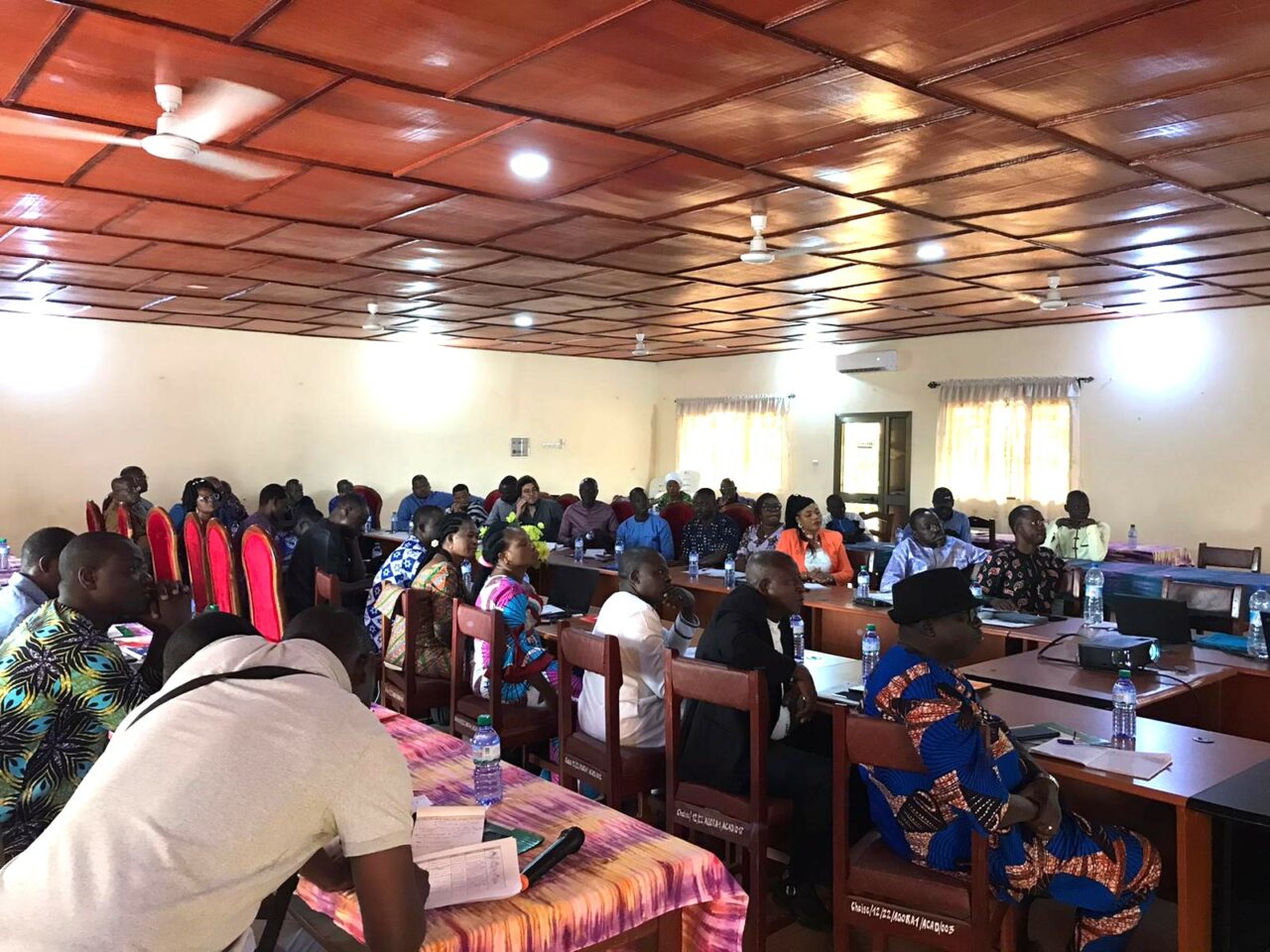
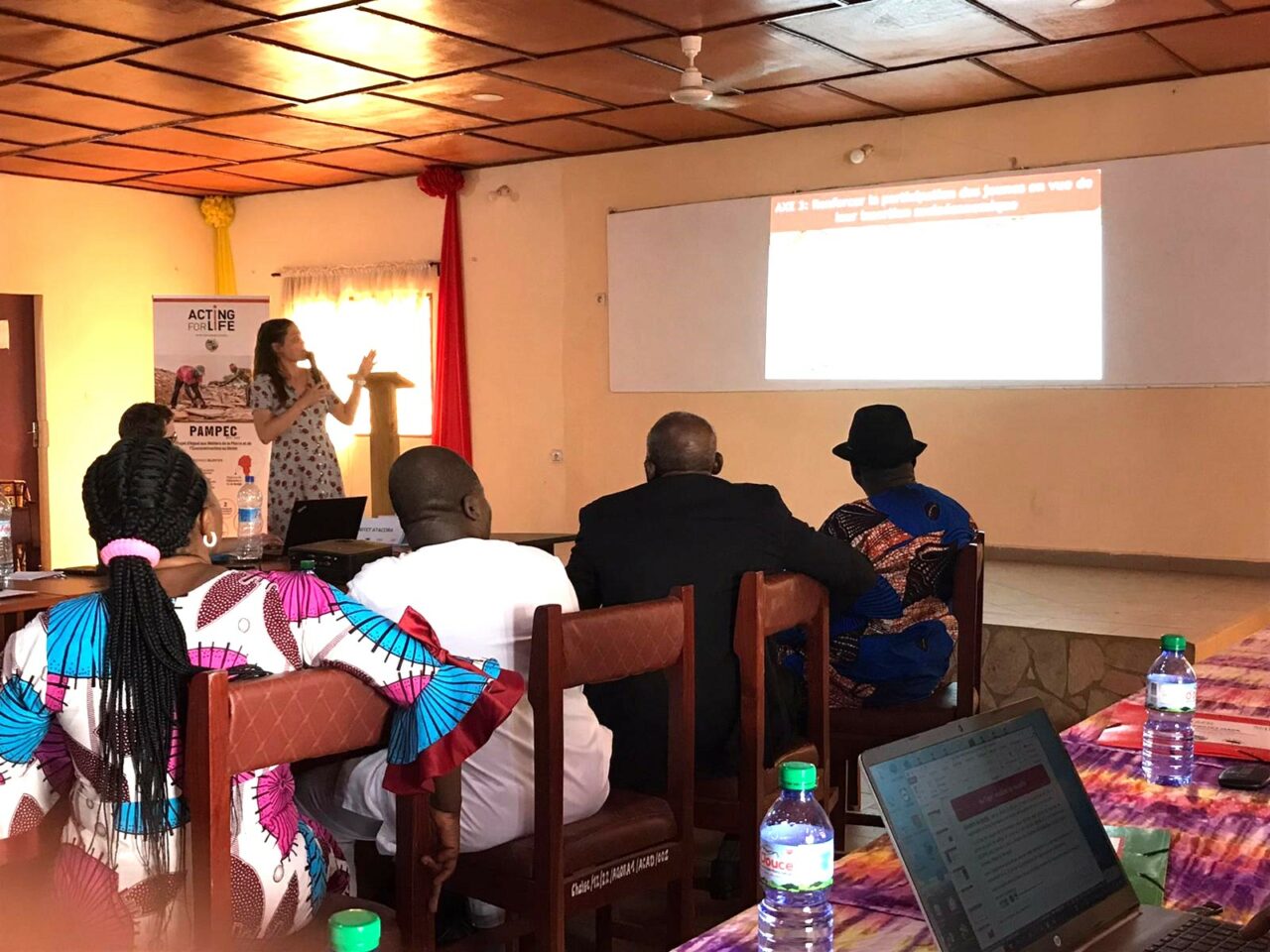
As a reminder, the project has four main aims:
– Training at least 105 young people and enhancing their skills in eco-construction trades;
– Improving the economic and social integration of young men and women;
– Strengthening the eco-construction sector in the intervention areas by increasing demand and professionalising the players involved;
– Supporting local initiatives to promote the inclusion of young people and social cohesion.
As the project comes to an end in August 2025, the prospects for the eco-construction sector are at the centre of the discussions. This intermediate workshop highlighted the challenges involved in ensuring that the project’s achievements are sustainable. Indeed, it is vital to guarantee sustainable professional integration for the young people supported. So, during the second phase of MADE, the project partners will be undertaking advocacy initiatives. They will highlight the integration of the eco-construction module into official masonry training programmes. They will also encourage the use of local materials in the construction of public and private buildings.
